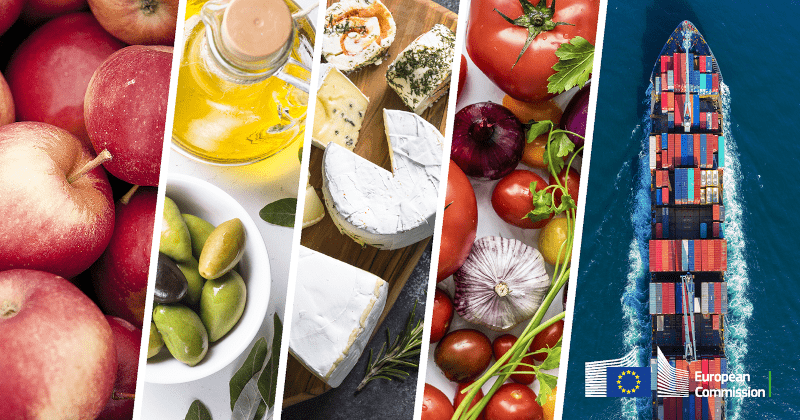In March 2024, the EU agri-food trade surplus reached €6.7 billion, an 8% increase from the previous month and 3% higher than March 2023. Exports increased by 4% to €20.1 billion, mainly due to increased prices for olives and olive oil. Imports remained stable, reaching €13.5 billion, but 10% lower than March 2023. These are the main findings of the latest monthly agri-food trade report published today by the European Commission.
Exports
EU agri-food exports reached €20.1 billion in March 2024, marking a 4% month-on-month increase. The United Kingdom (UK) remained the top destination of EU agri-food exports, accounting for 22% of EU export value. In the first quarter of 2024, the United States (US) saw the largest increase in EU exports with a 6% rise (€372 million), while China, despite a 12% reduction in value, remained the third destination. Among other significant evolutions, EU exports increased to Iraq and Lebanon, while Russia and Egypt experienced decreases.
In terms of exported products, EU exports of olives and olive oil saw the highest increase compared to 2023 (+€615 million, +51%) due to higher prices, despite a slight decline in volumes. Exports of coffee, tea, cocoa, and spices rose +10% primarily due to higher cocoa prices. Sugar and isoglucose exports remained at a high level, while cereal exports grew in volume, but fell in value due to lower prices. Finally, vegetable oils and dairy products saw declines due to reduced prices and volumes.

Exports and imports of agri-food products increased in January 2024 |
Imports
EU agri-food imports reached €13.5 billion in March, a 2% increase from the previous month but 10% lower than March 2023 mainly due to reduced volumes imported. Brazil, the UK, and Ukraine have been the primary sources of imports in 2024 so far. However, imports from these countries have decreased compared to 2023, due to reduced volumes and lower prices of cereals imports.
In terms of imported products, compared to 2023, imports increased for coffee, tea, cocoa, and spices (+€849 million, +16%), fruit and nuts (+€421 million, +8%), olives and olive oil (+€324 million, +160%). Meanwhile, imports decreased for oilseeds and protein crops (‑€1.5 billion, -22%), cereals (‑€1.4 billion, -36%) plus sugar and isoglucose (-€193 million, -36%).
More insights as well as detailed tables are available below in the latest edition of the monthly EU agri-food trade report.
Source: European Commission







Leave a Reply